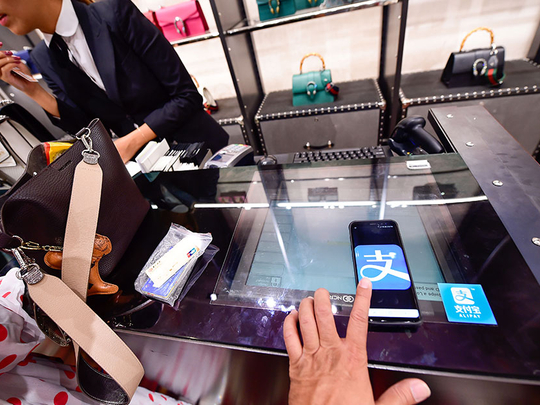
Dubai: Retailers in Dubai have increasingly been forced to accommodate free-spending Chinese shoppers in a number of ways, beyond simply hiring Mandarin-speaking staff.
Mandarin signs, new payment systems, and more bi-lingual shop staff are all part of a multipronged approach that stores in Dubai have had to adopt in response to the influx of Chinese tourists.
Airport store operator Dubai Duty Free, one of the oldest retailers in the city, was a pioneer in employing Chinese store staff.
“We recognised the importance of the Chinese traveller to our business very early on and began recruitment from China in 2006,” said Colm McLoughlin, executive vice-chairman and chief executive of Dubai Duty Free.
The retailer, which operates duty free stores at Dubai International and Al Maktoum International, has hired 190 new Chinese employees this year alone.
“We initially started off with 33 Chinese staff and of the current 6,070 employees, 783 staff are from China, which represent 13 per cent of our total manpower,” McLoughlin said, adding: “We are also expecting 60 more Chinese nationals to join us in the coming months.”
According to Dubai Duty Free, of the 783 Chinese employees, 770 work on the shop floor. These staff members are highly sought after by brands to promote their products, the chief executive says.
Holding company Meraas (which, in testament to the importance placed on the Chinese market, has a chief China affairs officer) launched its Hala China initiative earlier this year in a bid to attract Chinese tourists.
Last week, the initiative announced a number of partnership agreements, including with Emirates Airlines and Union Pay, one of the largest payment service providers in China.
Increasingly, accepting different forms of payment that are commonplace in China has become an imperative for retailers throughout the UAE.
In a recent interview with Gulf News, Issam Kazim, the chief executive of Dubai Corporation for Tourism and Commerce Marketing (Dubai Tourism), spoke at length about plans to further cement the relationship between Dubai and China’s largest technology companies, while using its weight as a government authority to “take steps that address every aspect of a visitor journey.”
One of the most prominent steps in this strategy, according to Kazim, is to drive broader acceptance of Chinese payment facilities such as WeChat Pay, the online payment service provider owned by Tencent.
Between AliPay, another Chinese mobile wallet, and WeChat Pay, the pair have nearly one billion active users, according to recent data, highlighting the importance for retailers of being able to accept these payment methods.
One of the first companies in the UAE to adopt AliPay was Al Tayer Insignia, the family office’s retail arm. The company confirmed to Gulf News that select stores within its network, including Bloomingdales, had begun accepting Alipay in February 2018.
The retailer says it will soon extend the number of stores in its network that accept AliPay.
“What we are finding is that associations with Chinese institutions such as Union Pay have helped influence traffic to our stores from the high disposable income category,” said Greig Fowler, chief executive of AW Rostamani Lifestyle in a recent interview with Gulf News.
“What we managed to do during the peak December-January period was able to offer redeemable loyalty points and rewards from the banks for shopping and using the Union Pay card,” he added.
According to industry analyst Vineet Shrivastava, Dubai is in vying with Bangkok, Singapore, and the European capital cities for Chinese spend, and as a result must hire more Mandarin-speaking staff to cater to this distinctive market.
“The Chinese are unique in that currently, only a single digit percentage of the population has a passport,” Shrivastava said, “and we have already reached into the segment that can’t speak English at all.”
Any further penetration into the Chinese market, he added, would likely hit tourists who only understand Mandarin, and who will “prefer dealing with Mandarin speakers, or using their own tour guides as intermediaries and translators.”
As both the number of Chinese travellers flying through Dubai International and those shopping at Dubai Duty Free has increased substantially, McLoughlin says that the products themselves are changing in order to appeal to a Chinese audience.
“Chinese travellers currently account for around 4 per cent of passengers at Dubai International, but account for 15 per cent of sales, which is significant,” McLoughlin said.
“New product developments now strongly factor in the Chinese buying habits, and more and more brands are implementing product labels to have Mandarin translations on products.”











